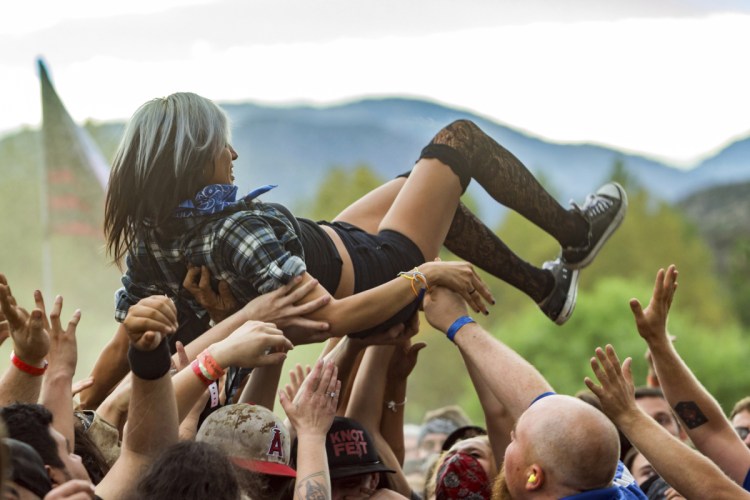NASHVILLE, Tenn. — When Emma Friedman went to her first rock festival at the age of 17, she was so excited to get to see bands she loved. But as she was leaving, she recalls her mom made a comment like, “Are you sure you want to wear those shorts?”
Friedman didn’t think anything of it until she got groped at the festival.
“They were what I felt confident in and what made me feel comfortable,” said Friedman, who is now 20 and going to school in Asheville, North Carolina. “And then I was crowd surfing and some guy was trying to be inappropriate.”
Friedman said her friend who accompanied her was groped so hard she bled.
Friedman is one of many music fans who have spoken up about sexual harassment and groping at musical festivals recently as the #MeToo movement has emboldened more people to talk about harassment in public spaces. With more attention on the longstanding problem but little statistical data on how often it happens, music fans and even artists are asking the live music industry to make cultural changes.
This year, Friedman went back to the same festival, called Carolina Rebellion, this time armed with a sign that said, “Stop Sexually Assaulting Female Crowd Surfers.” She said the response was overwhelming positive, from both women and men.
Some festivals are responding to complaints by training festival staff and volunteers on how to respond to harassment, adding booths or signs with information on where to report sexual violence, and having clearly posted anti-harassment policies.
Festivals like Bonnaroo, Lollapalooza and Austin City Limits have prominently posted policies on their websites and on festival grounds about harassment and how to report it.
Police generally report a drug and alcohol arrests after a major festival but when sexual assaults are reported, which is rare, it generally becomes big news and can be damaging to a festival’s reputation.
Multiple women reported to police as being raped at the Woodstock ’99 festival, which was roundly criticized for overall violence and destruction.
There are a lot of barriers for people to report sexual harassment or abuse. Large-scale festivals make it difficult for harassers to be identified. Similarly, victim blaming can also arise.
– From news service reports
Send questions/comments to the editors.



Success. Please wait for the page to reload. If the page does not reload within 5 seconds, please refresh the page.
Enter your email and password to access comments.
Hi, to comment on stories you must . This profile is in addition to your subscription and website login.
Already have a commenting profile? .
Invalid username/password.
Please check your email to confirm and complete your registration.
Only subscribers are eligible to post comments. Please subscribe or login first for digital access. Here’s why.
Use the form below to reset your password. When you've submitted your account email, we will send an email with a reset code.